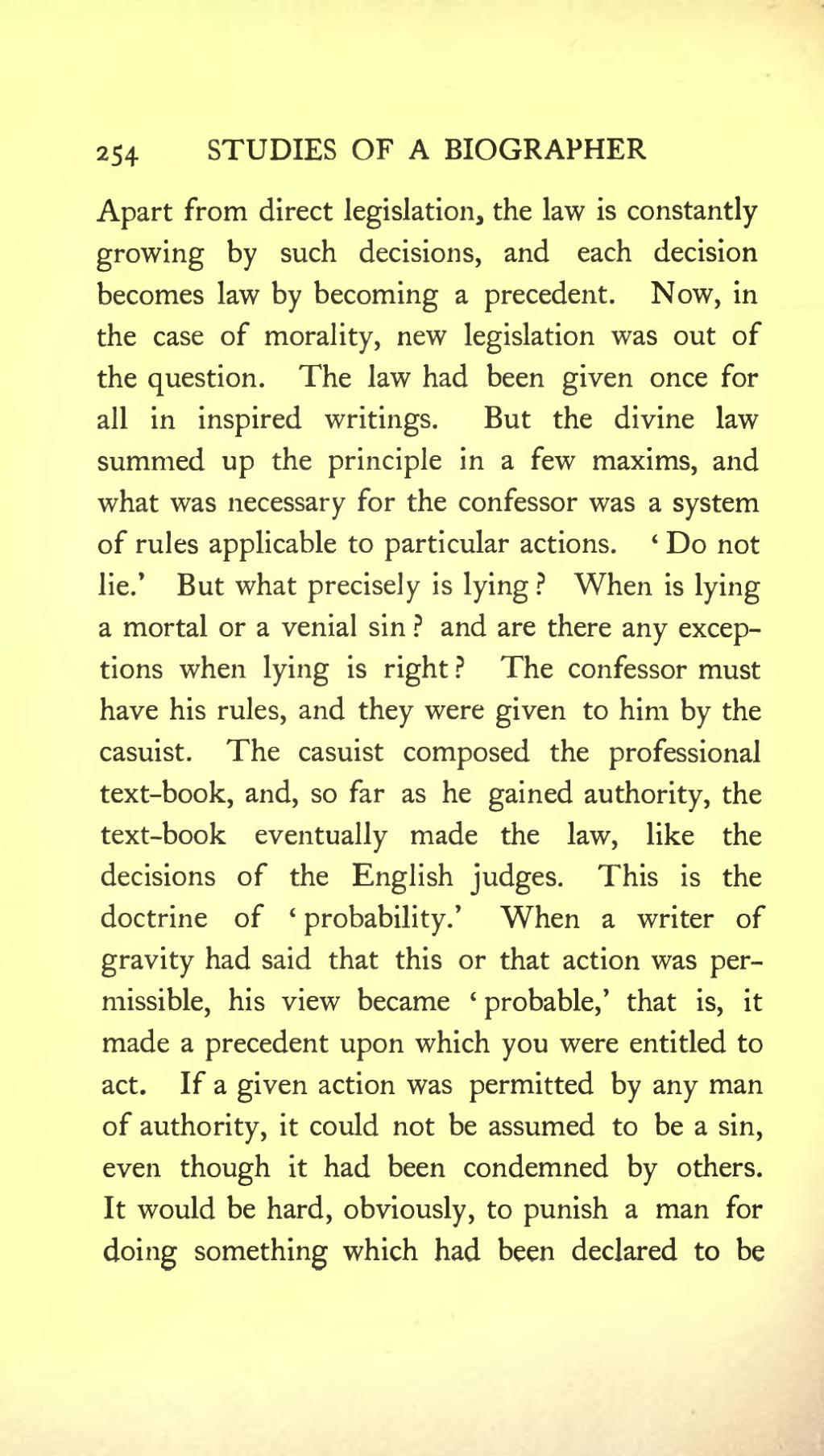Apart from direct legislation, the law is constantly growing by such decisions, and each decision becomes law by becoming a precedent. Now, in the case of morality, new legislation was out of the question. The law had been given once for all in inspired writings. But the divine law summed up the principle in a few maxims, and what was necessary for the confessor was a system of rules applicable to particular actions. 'Do not lie.' But what precisely is lying? When is lying a mortal or a venial sin? and are there any exceptions when lying is right? The confessor must have his rules, and they were given to him by the casuist. The casuist composed the professional text-book, and, so far as he gained authority, the text-book eventually made the law, like the decisions of the English judges. This is the doctrine of 'probability.' When a writer of gravity had said that this or that action was permissible, his view became probable,' that is, it made a precedent upon which you were entitled to act. If a given action was permitted by any man of authority, it could not be assumed to be a sin, even though it had been condemned by others. It would be hard, obviously, to punish a man for doing something which had been declared to be
Page:Studies of a Biographer 2.djvu/266
This page has been validated.
254
STUDIES OF A BIOGRAPHER
